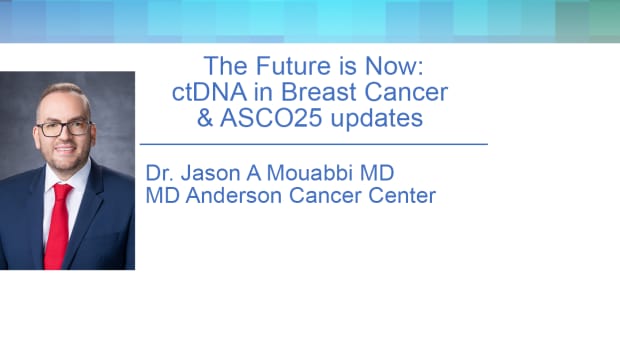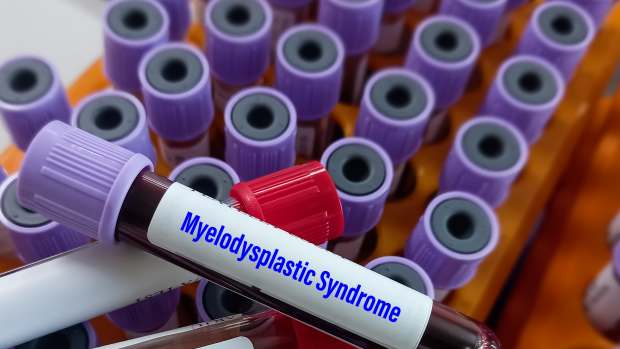
Genetic Variatiosn Predict Response to Therapy & Survival in Esophageal Cancer
According to results presented at the 2005 annual meeting of the American Association for Cancer Research (AACR), specific genetic variations can help predict responses and survival associated with specific types of therapies in the treatment of esophageal cancer.
The esophagus is a tube that connects the back of the mouth to the stomach. Cancer of the esophagus, or esophageal cancer, is considered a highly aggressive cancer. The American Cancer Society predicts that over 14,500 new cases of esophageal cancer will be diagnosed this year in the United States, and over 13,500 deaths will be caused by the disease in 2005. Approximately half of all diagnoses of esophageal cancer occur when the disease is already in an advanced state, which means that cancer has spread from its site of origin to several or distant sites within the body. Standard treatment for advanced esophageal includes chemotherapy and/or radiation therapy.
Due to the dismal outcomes of advanced esophageal cancer, researchers are evaluating ways in which to predict which patients may achieve good responses and improved survival with standard therapeutic approaches, so that patients with a poor prognosis following standard therapy may choose to undergo novel therapeutic approaches. The testing of genetic variations and associated outcomes in patients with cancer is gaining momentum in the clinical field, and intense research continues in this area, as specific genetic variations may help to individualize treatment regimens to provide optimal outcomes for all patients.
Researchers from the MD Anderson Cancer Center recently collected samples of cancer from 210 patients who had been diagnosed and treated for esophageal cancer. The researchers were able to isolate specific genetic variations that provided associations between responses and long-term outcomes with specific treatment regimens. Two genetic variants, referred to as the AA and AC genotypes, were associated with significant differences in survival and time to a cancer recurrence in patients treated with the commonly used chemotherapy agent 5-flourouracil (5-FU). Patients with the AA genotype had an average overall survival of 51 months and an average time to a cancer recurrence of 36 months, compared to 25 months and 17 months, respectively, in patients with the AC genotype. In addition, variants of the multi-drug resistant genes referred to as CT, TT, and CC were associated with significant differences in survival in patients treated with the commonly used chemotherapy agent cisplatin. Patients with the CT variant had an average survival of 29 months, while those with a TT variant had an average survival of 44 months, and those with the CC variant had an average survival of only 17 months. Patients who had undergone radiation therapy also had variants of the gene XRC11 that were associated with differences in survival. Patients with the GG variant had an average survival of more than 57 months, while those with a GA variant had an average survival of almost 23 months, and those with an AA variant had an average survival of only 14 months.
The Future is Now ctDNA in Breast Cancer ASCO25 updates
The Future is Now ctDNA in Breast Cancer ASCO25 updates
Promising Results for Bexmarilimab Plus Azacitidine in High-Risk MDS
Bexmarilimab combined with azacitidine achieved a 63% overall response rate (ORR) in relapsed/refractory (R/R) higher-risk myelodysplastic syndrome (MDS) patients.
FDA Approves First Nonsurgical Treatment for Recurrent, Low-Grade, Intermediate-Risk NMIBC
In the phase 3 ENVISION trial, 78% of patients with non–muscle-invasive bladder cancer had no detectable cancer at three months after starting mitomycin intravesical solution (Zusduri)
The researchers concluded that specific genetic variants are associated with significant differences in responses and survival outcomes to specific therapies. Although these results represent the infancy of genetic testing, they provide a platform from which to proceed in order to change the way of treating cancer patients so that treatment may become more individualized. Patients diagnosed with esophageal cancer may wish to speak with their physician about their individual risks and benefits of participating in a clinical trial further evaluating genetic testing.
Reference: Ajani J, et al. Monitoring the Effectiveness of Anti-Cancer Therapies. Proceedings from the 2005 annual meeting of the American Association for Cancer Research. Anaheim California. Presented Tuesday, April 19, 2005. Abstract #9243.






